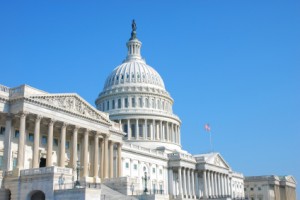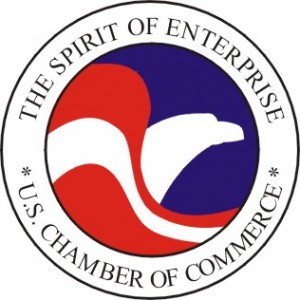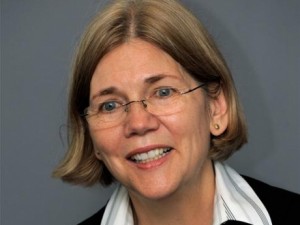President Barack Obama’s proposal to create a Consumer Financial Protection Agency came in with a bang. But it appears to be going out with a whimper.
Before the proposal was introduced in Congress last year, Treasury Secretary Tim Geithner said of the economic meltdown. “This crisis was caused, in part, by a lack of consumer protections.”
And?
Watchdog Nation checked in with several Washington, D.C., sources last week to learn what’s happening to the proposal in Congress.
The answer? Not much.
passed the House but is stuck in the Senate.

“Opposition to financial reform is intense, coming in particular from big banks and other monied interests that seek to protect the status quo,” the said in a recent statement.
The U.S. Chamber of Commerce says a new agency would hurt small-business owners that rely on credit cards, home-equity loans, auto-title loans and other sources of consumer lending to finance their businesses.
“The idea sounds great on its face, but we need to have a serious discussion about what the CFPA would actually do and what authority it would have,” Ryan McKee of the chamber told me. “The potential for unintended consequences is great.”

The CFPA would give federal regulators power to oversee mortgage companies, mortgage brokers, finance companies, payday lenders and other nonbank providers. Businesses would be blocked from offering financial products that charge prepayment penalties, unjustified fees and excessive interest rates.
Supporters say the agency would provide the public with better information about how to avoid so-called abusive lending and credit problems, and would improve disclosure to borrowers.
It would merge the enforcement divisions of several government agencies into the new agency.
The chamber says it worries that small businesses would lose access to credit, something they already struggle with because they are either too small or too new. The predicted result? Business closures, fewer startups, slower growth and the loss of jobs.
The chamber is also concerned that the proposal would ban products that are abusive but doesn’t clearly define abusive, said McKee, senior director for the chamber’s Center for Capital Markets Competitiveness.
Another sticking point for the chamber: The bill requires “too much disclosure” to consumers.
“Having too much disclosure is like having no disclosure at all,” McKee said, adding: “We need to simplify the disclosures so people get straightforward information.”
The chamber’s solution: Close gaps in existing laws that kept regulators from finding major problems; increase authority for regulators to enforce existing rules; and make sure regulators from various agencies communicate better.
The proposal for a CFPA was first floated in 2007, a year before the meltdown, by Harvard Law School professor Elizabeth Warren. She noted that federal regulators won’t allow a toaster that could burst into flames to hit the market. But mortgages and other “dangerous financial products,” she wrote, are not similarly regulated.

Elizabeth Warren
With questionable loans, she wrote, families can suffer from “wiped-out savings, lost homes, higher costs for car insurance, denial of jobs, troubled marriages, bleak retirements and broken lives.”
Warren is considered a strong candidate to head the agency — if it ever comes into existence.
Sen. Chris Dodd, D-Conn., chairman of the Senate Banking Committee, is carrying the ball for the CFPA. But he’s running into a strong defense put up by Sen. Richard Shelby of Alabama, the top Republican on that panel. Shelby has called the proposal “a folly and dangerous.”
It all comes down to whether Dodd and Shelby can agree on a compromise.
“We have reached an impasse,” Dodd said this month. “While I still hope that we will ultimately have a consensus package, it is time to move the process forward.” Dodd says he hopes to release a new proposal this month.
Sen. Richard Durbin, D-Ill., explained last year why he believes it’s tough to get a proposal through: “The banks — hard to believe, in a time when we’re facing a banking crisis, that many of the banks created — are still the most powerful lobby on Capitol Hill. And they frankly own the place.”
Susan K. Weinstock, director of financial reform for the Consumer Federation, said she views that as the major hurdle.
“How much are senators hearing from individual consumers about this? How much do consumers know about this?”

What do you think? I’m most interested in your comments on this.
Better yet, contact your congressional representatives and let them know what you think. If you don’t know who they are, visit www.votesmart.org and type in your zip code — and you’ll quickly find out.
# # #
Do you want to learn more?
, known as the Wall Street Reform and Consumer Protection Act, is now in the Senate.
It merges regulatory powers of the Federal Reserve, Office of Thrift Supervision, the Federal Deposit Insurance Corporation, the Office of Comptroller of the Currency, the Federal Trade Commission and the National Credit Union Administration.
# # #
Dave Lieber, The Watchdog columnist for The Fort Worth Star-Telegram, is the founder of Watchdog Nation. The new 2010 edition of his book, Dave Lieber’s Watchdog Nation: Bite Back When Businesses and Scammers Do You Wrong, is out. Revised and expanded, the book won two national book awards in 2009 for social change. Twitter @DaveLieber


